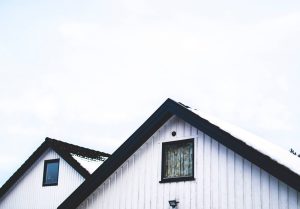Buying a new home can be super exciting right? You get to pick your favorite colors, decide where to put the furniture, and even make some new friends in your neighborhood. But before you get too carried away daydreaming about your new living room, there’s something really important you need to think about: Water damage and mold! Yikes! Nobody wants to deal with these messy problems. So, let’s dive into what you can do to avoid mold and water damage issues when buying a home.
What Is Water Damage and Why Is It Bad?
Water damage happens when water gets where it shouldn’t be! Whether it comes from heavy rain, a broken pipe, or flooding, it can really hurt a house. Water can:
– Make walls and ceilings soggy.
– Ruin your nice floors.
– Create mold, which is bad for your health.
When you’re buying a home, you want to make sure it’s safe and healthy for you and your family. Understanding the signs of water damage can help protect your new home.
Signs of Water Damage in a Home
Here are some signs of water damage to look out for:
– Stains on Ceilings and Walls: If you see brownish stains, that could mean water is leaking.
– Peeling Paint or Wallpaper: When water gets behind the paint, it can cause it to bubble or peel off.
– Musty Smell: A bad smell can mean mold is lurking around.
– Wet Spots: If the floor feels wet, there may be a problem.
Taking a peek at these signs is really important when you’re considering buying a house. It’s like conducting a mini inspection!
Home Inspection for Mold Issues
A home inspection is a smart way to check for mold problems in houses before making a purchase. Here’s how you can protect yourself:
1. Hire a Good Inspector: Look for someone who knows about mold and water damage.
2. Ask Questions: Don’t be shy! Ask if they check for water damage and mold issues.
3. Get a Report: Make sure you get a detailed report. This will help you know what needs fixing.

How to Detect Home Water Leaks
Detecting water leaks is super important. Here are some easy tips:
– Check Your Water Bill: A sudden increase in your bill may mean there’s a leak.
– Use Your Eyes: Look for wet or damp areas on floors or walls.
– Listen Carefully: Sometimes, you can hear water dripping!
If you find a leak, let the owner know. It’s much better to deal with it before you buy the house!
Foundation Water Damage Signs
Your home’s foundation is super important. If it’s damaged, it can lead to all sorts of problems! Here’s what to check for:
– Cracks in the Walls: Look outside and inside for any cracks.
– Unlevel Floors: If the floors feel uneven, it could be a sign of foundation issues.
– Water Pooling Near the House: If water accumulates around the foundation, that’s a big red flag!
Should I Buy a House with Past Water Damage?
If you find out a house has had water damage in the past, you may wonder if you should still buy it. Here are things to consider:
– How Bad Was the Damage? If it was small and fixed properly, it might be fine!
– Check for Warranty: Sometimes, fixes come with warranties. That can be a good thing!
– Ask Questions: Talk to the seller to learn about what they’ve done to fix the problems.
Real Estate Flood Risk
Some areas are more prone to flooding than others. Before buying, check if the area has a real estate flood risk. It could save you a ton of trouble later! You can:
– Research Online: Look for flood maps that show risk zones.
– Talk to Neighbors: They might have valuable info about flooding in the area.
Protecting Your Home from Moisture Issues
Once you have your home, you want to keep it safe from moisture! Here’s how:
– Use Dehumidifiers: These can keep the air nice and dry.
– Seal Windows and Doors: Make sure water can’t sneak inside.
– Keep Gutters Clean: This helps rainwater flow away from the house, not down into it.
Mold Removal Costs in Ontario
If you find mold, you might need to call in the pros. Mold removal costs can vary. Here’s what you might pay:
– Small Areas: $500 to $1,500.
– Larger Areas or Fixes: It can go up to $5,000.
It’s better to deal with mold before it gets too big and expensive!

Helpful Tips To Remember
– Always check for signs of water damage.
– Hire a home inspector who knows about mold.
– Don’t be afraid to walk away if things don’t seem right.
At the end of the day, you want a home that’s healthy for you and your family. Pay attention to these tips, check for water damage, and ask questions if you see something suspicious.
If you have more questions, check out some websites that specialize in home buying or a local real estate agent who knows the area well. They can help you answer questions and provide more details on homes with water issues.
Let’s keep our homes safe and happy! If you found this post helpful, share it with your friends!



















